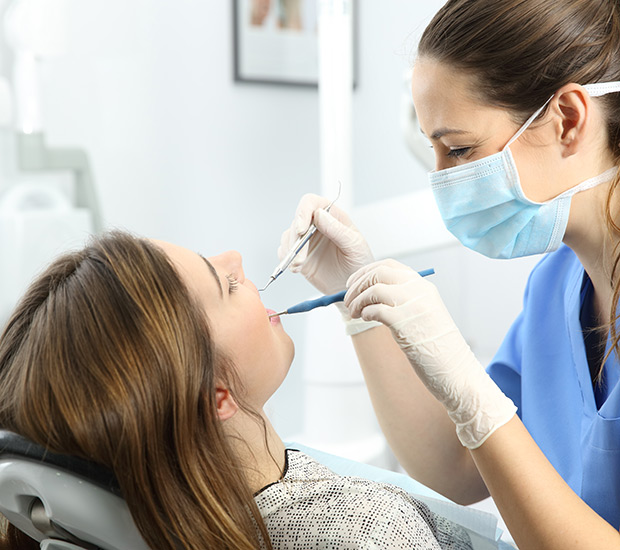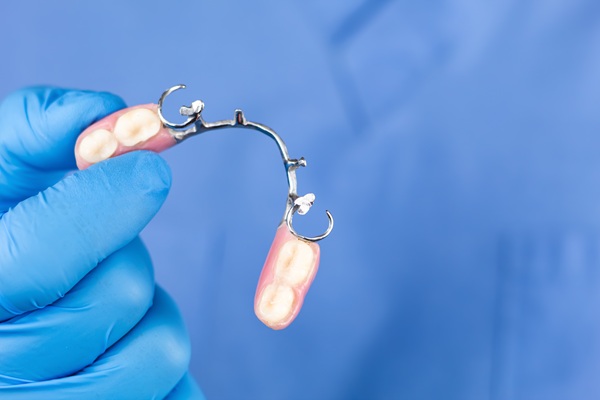What Does a Dental Hygienist Do Dumont, NJ
One of the people you will likely spend the most time with at the dentist's office is the dental hygienist. Dental hygienists work in tandem with the dentist to meet a patient's oral health needs. Their duties vary but often include patient screening and education, taking X-rays, removing plaque from teeth, and doing a thorough cleaning and polishing. They will also conduct a complete examination of your teeth and alert the dentist to any areas of concern.
Dental hygienists act as a bridge between the dentist and the patient at Dumont Family Dental in Dumont and the surrounding area. Call us at (201) 374-7202 to schedule an appointment or to learn more.
Dental Hygienist Training and Certification Process Details
In order to become a dental hygienist, a candidate must first complete a college program in dental hygiene. Students in the program may earn an associate degree at a community college, a bachelor's degree at a four-year university, or a graduate degree. Admissions to programs in dental hygiene usually require a background of high school courses in science.
After completing the academic college-level courses, dental hygienist candidates must then complete a supervised clinical experience with patients. Once the program is finished, dental hygienists must earn their state license in the practice. According to the American Dental Association, some states also require candidates to earn a passing score on the National Board Dental Hygiene Exam.
“After completing the academic college-level courses, dental hygienist candidates must then complete a supervised clinical experience with patients.”
Patient Screening and Technology
Dental hygienists are typically responsible for patient screenings. Before the dentist comes in to do their exam, the hygienist will look for signs of tooth decay and gum disease. Those findings will then be reported to the dentists before they begin. Additional screening procedures may include:
- Oral cancer screening
- Patient health history
- Heath and neck inspection
- Blood pressure and pulse
Dental hygienists also need to use several tools to complete a patient visit. They may use basic tools such as a mirror as well as power and ultrasonic tools for cleaning and polishing teeth. X-ray machines check for issues with the teeth and jaws. Some of the more advanced tools can include lasers, an intraoral camera, and an ultrasonic scaler that uses vibration to gently remove plaque from the teeth.
“Before the dentist comes in to do their exam, the hygienist will look for signs of tooth decay and gum disease.”
Recommendations and Documentation
Another aspect of a dental hygienist's job is to counsel patients and provide advice for optimal oral health. They may educate patients about the importance of proper brushing and flossing and provide suggestions for oral hygiene techniques. Dental hygienists also may offer recommendations for different types of toothbrushes and flossing products.
Proper oral care at the dentist also requires documentation of treatment and the condition of the patient's mouth and teeth. The dental hygienist works with Dumont Family Dental to document the condition of the gums, teeth, and screening results. Effective record-keeping helps providers monitor possible problem areas.
“Effective record-keeping helps providers monitor possible problem areas.”
Check out what others are saying about our dental services on Yelp: What Does a Dental Hygienist Do in Dumont, NJ
Documentation Work
One part of a dental hygienist's job that is equally important to screening, counseling, and cleaning is the documentation of patient care and treatment. They are instrumental in creating and maintaining a patient's dental record and will document everything that is discussed and performed during their visit. A dental record includes personal information, along with medical and dental histories.
Dental records help the office deliver quality patient care and follow-up. They are also considered legally binding medical documents. Today, most dental records are kept electronically and can be sent to future health practitioners or specialists.
“One part of a dental hygienist’s job that is equally important to screening, counseling, and cleaning is the documentation of patient care and treatment.”
Questions Answered on This Page
Q. What is a dental hygienist's training and certification process entail?
Q. What is included in the documentation of a dental hygienist's job?
Q. Does a dental hygienist do patient documentation?
People Also Ask
Q. How often should someone have a dental checkup?
Q. What happens during a dental cleaning?
Q. Am I at high risk for developing oral cancer?
Q. Why is dental care so important?
Q. What family members may need extra help with their oral hygiene?
Frequently Asked Questions About a Dental Hygienist
Q. What is the difference between a dental hygienist and a dentist?
A. Dental hygienists and dentists have very different roles within a dental practice. A dental hygienist will conduct oral screenings, update your patient information, take x-rays, do a thorough cleaning, and look for potential problems. The dentist will come in following the cleaning to do an exam and will also handle more complicated procedures.
Q. What sort of training do dental hygienists have?
A. Dental hygienists have graduated from an accredited dental hygiene program and have taken and passed state exams to receive their license. During their studies, dental hygienists take classes in head and neck anatomy, pathology, nutrition, and medical ethics. Most programs take about three years to complete.
Q. What do dental hygienists do?
A. Dental hygienists have several different roles in an office. They can assist the dentist during procedures, update the patient's chart, show patients how to care for their teeth, perform oral health screenings, and remove plaque from the teeth. They can also apply fluoride and sealants to teeth as well as take impressions.
Q. What is the difference between a dental assistant and a dental hygienist?
A. It can be easy to confuse dental assistants and dental hygienists as they perform many of the same duties. Dental assistants can take x-rays, prepare instruments and equipment, take impressions of the teeth, and assist the dentist during procedures. However, unlike dental hygienists, they do not collect patient health history, remove plaque from the teeth, apply sealants or fluoride, or do any patient documentation.
Q. Does a dental hygienist receive certification or licensure?
A. Dental hygienists must complete at least an Associate's degree in dental hygiene. They must then pass the National Board Dental Hygiene Examination (NBDHE) in order to achieve licensure. This exam is the only one required by all 50 states.
Dental Terminology
Call Us To Schedule Your Next Appointment With a Dental Hygienist
If you want to improve your dental health, call us at 201-374-7202 for an appointment with a dental hygienist. Get started on a treatment plan that focuses on strong teeth and preventative strategies. Our team in Dumont is ready to help you achieve optimal oral health.
Helpful Related Links
- American Dental Association (ADA). Glossary of Dental Clinical Terms. 2024
- American Academy of Cosmetic Dentistry® (AACD). Home Page. 2024
- WebMD. WebMD’s Oral Care Guide. 2024
About our business, and website security
- Dumont Family Dental was established in 1973.
- We accept the following payment methods: American Express, Cash, Check, Discover, MasterCard, and Visa
- We serve patients from the following counties: Bergen County
- We serve patients from the following cities: Dumont, New Milford, Bergenfield, Tenafly, Cresskill, Demarest, Haworth, Hackensack, Englewood, Teaneck, River Edge, and Paramus
- National Provider Identifier Database (1689734162). View NPI Registry Information
- Norton Safe Web. View Details
- Trend Micro Site Safety Center. View Details
Back to top of What Does a Dental Hygienist Do










